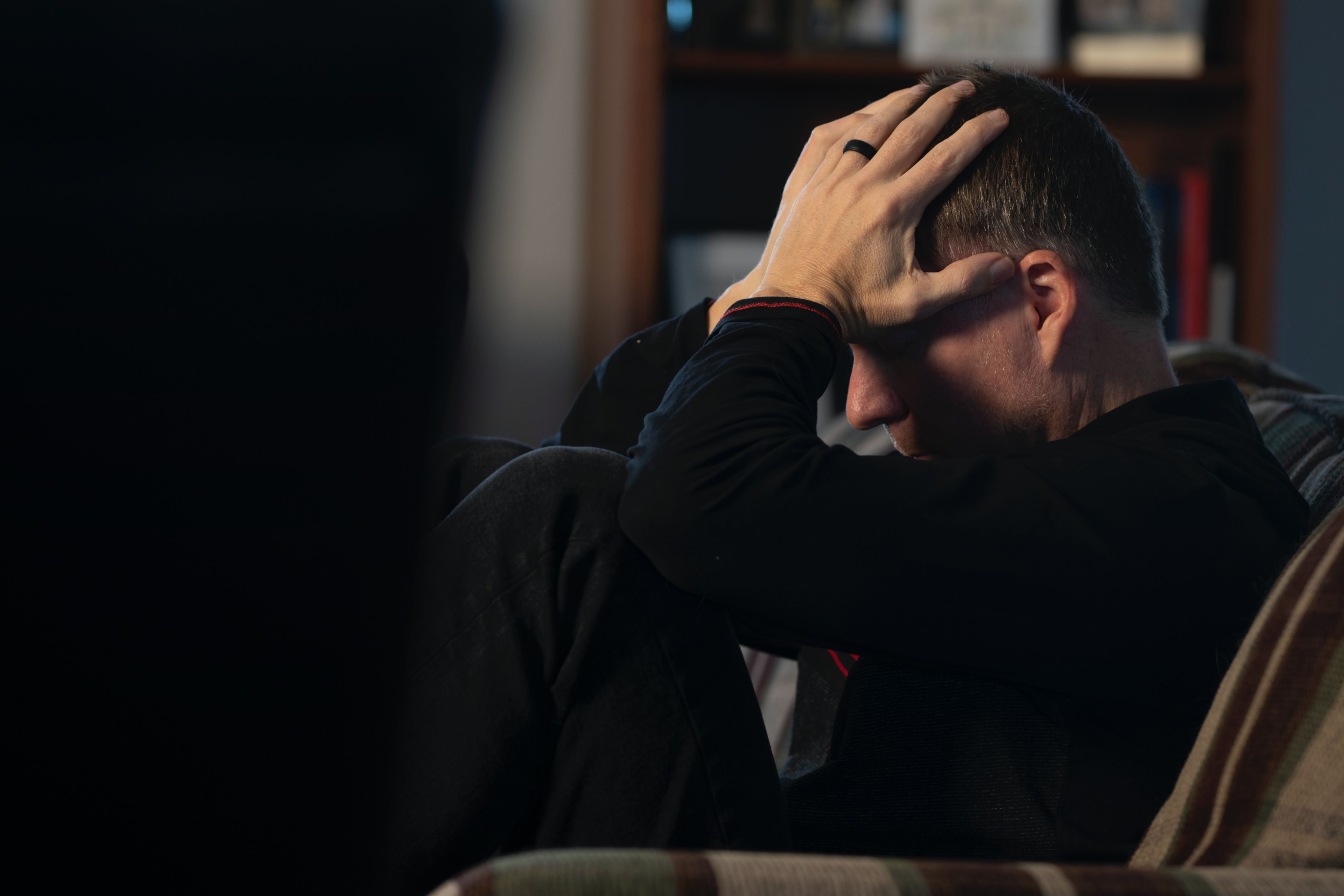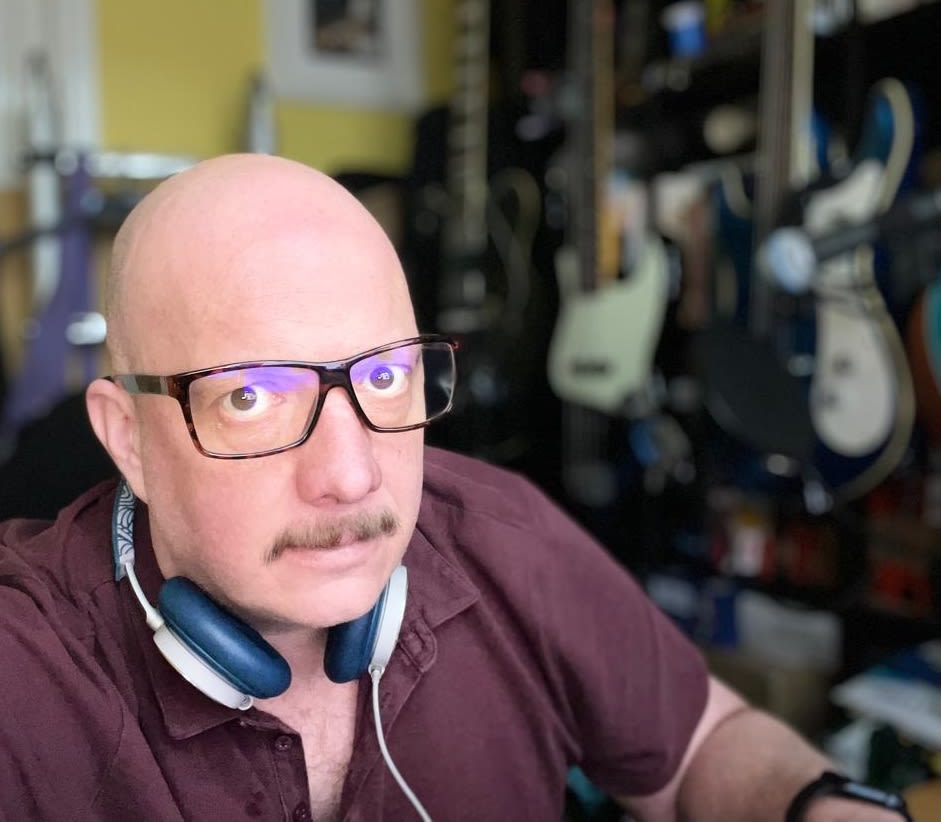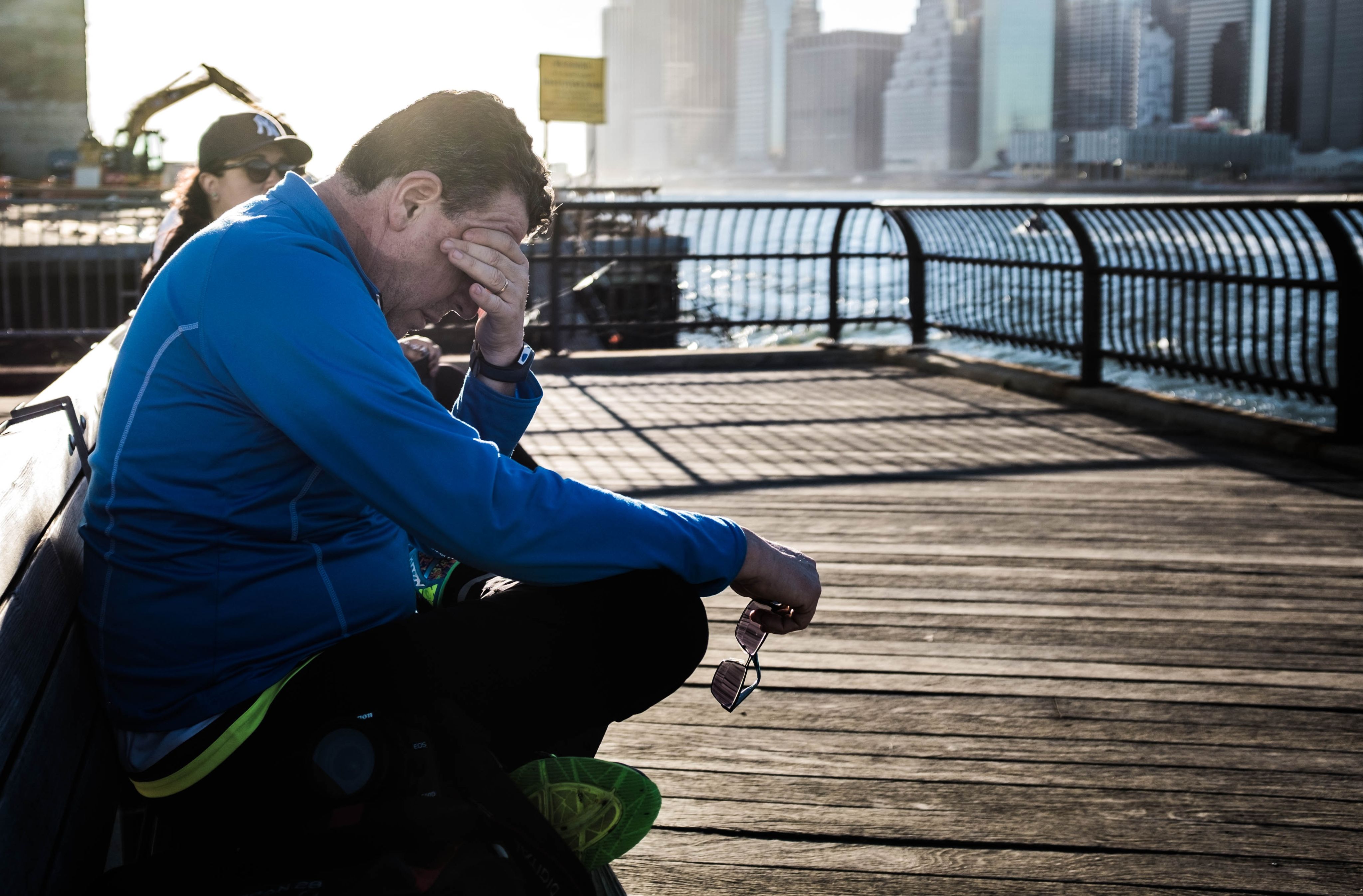"I was trying to fight this...but I realised that was completely futile."
Long Covid Awareness Day 2023 has highlighted the exhausting journey faced by sufferers of Long Covid - a condition misunderstood by many and difficult for researchers to tackle

“I basically stayed in bed for three months. I kept trying to get up and I couldn't. There was just no energy at all.”
Hugh Ruiz is a teacher from Sheffield. The 53 year-old started to struggle following a serious Covid-19 infection which resulted in him being hospitalised in October 2021.
He was off work for six months, and is just one of an estimated 2 million people according to the Office for National Statistics who are still suffering long-term following a Covid infection.
It’s only a few months now until the two-year anniversary of ‘Freedom Day’ in the UK, when on 19 July 2021 almost all Covid restrictions were lifted - and many heralded the closing of the final chapter of the virus.
But this simply isn’t the case.
I spoke to Dr Mark Faghy, Associate Professor in Respiratory Physiology at the University of Derby, who is currently leading a pioneering international study to improve the lives of people suffering from Long Covid.
He stressed that unless Covid-19 miraculously disappeared, Long Covid will forever be a diagnosis - and that work needed to be put in place to support intervention.
The importance of this is emphasised by the severity and disabling nature of the condition, something which can be underestimated by those who have not suffered themselves.
Dr Faghy discusses the symptoms someone might experience in a relapse of Long Covid, the first Long Covid awareness day, and how it will continue to be diagnosed.
Dr Faghy discusses the symptoms someone might experience in a relapse of Long Covid, the first Long Covid awareness day, and how it will continue to be diagnosed.
“I was trying to fight this like, no, I'll be back at work tomorrow. You set yourself deadlines, but I realised that was absolutely futile. There was no point in trying to trick yourself."

A visualisation of the activity to rest ratio through the idea of a battery.
A visualisation of the activity to rest ratio through the idea of a battery.
Dr Caroline Dalton explains why Long Covid is an umbrella term, as well as the difficulties this presents.
Dr Caroline Dalton explains why Long Covid is an umbrella term, as well as the difficulties this presents.
Hugh himself said that he had underestimated just how debilitating chronic conditions such as ME could be until his own struggle with Long-Covid:
“I just thought, no, it surely can't be that bad. But it really is. And I don't think people understand.
“It's been horrendous. I wouldn't wish it on anyone.”
As well as suffering from severe fatigue and brain fog, the teacher said the lack of linearity in the condition is one of the things that makes it so difficult. Symptoms can be better or worse week to week, rather than being a straightforward recovery from ill to well.
Hugh described his own revelation of this fact: “I was trying to fight this like, no, I'll be back at work tomorrow. You set yourself deadlines, but I realised that was absolutely futile. There was no point in trying to trick yourself.
“There are days when I've gone to school when I know I should have just gone to bed. I can't not go. You just feel guilty not to do the things that you ought to be doing, even though really you shouldn't be. It's a catch-22.”
According to Dr Caroline Dalton, Associate Professor in Neuroscience and Genetics at Sheffield Hallam University, this lack of linearity can reflect the fact that people with chronic illnesses such as ME and Long-Covid have a different activity to rest ratio than fully-healthy people.
This means that while normally a person can manage 16 hours of activity with eight hours of rest, someone like Hugh may only be able to manage four hours. Pushing yourself beyond this limit can result in a relapse of symptoms that can last for weeks.
Activity does not mean only things such as working, or physical exercise. Tasks such as showering, cooking, or taking the washing out all eat into a sufferer's already limited ‘activity’ time.
Long Covid therefore defies an ingrained attitude in society, that ‘pushing through’ or ‘getting on with it’ will help with the condition, because it can actually make it far worse.
“My breathing deteriorated. Holding a conversation like this was impossible. I’d start okay but within a few minutes, I was starting to struggle for breath."

Paul tweets a lot about his experiences with Long Covid, and is slowly trying to get active once again.
Paul, who cannot be identified due to his role within the police, echoes many of the same feelings as Hugh.
Serving as a Counter Terrorism Special Firearms Officer at the time of his COVID infection in March 2020, Paul was fit and active prior to his illness. He enjoyed running, and went to the gym three to four times a week.
Soon however, the condition left him struggling to even talk:
“My breathing deteriorated. Holding a conversation like this was impossible. I’d start okay But within a few minutes, I was starting to struggle for breath.
“Everyday was like a lucky dip. I’d get up each day and I might be tired but fine, but I might have diarrhoea, sudden vomiting, I could have vertigo, joint pain, or my eyes could be irritated like I’ve been sprayed with CS gas.”
Paul also suffers from Post-Exertional Malaise, meaning that even when he feels good - any attempt to try and get back into being active has to be carefully managed in order to avoid a massive regression in symptoms back to the height of his illness.
It all took a mental toll, and led to him seeking out counselling for the first time:
“It does chip away at your mental resolve as well. I don't mind admitting that. I've dealt with all kinds in the past - blood, guts, really traumatic events, it doesn't bother me.
“This is the only time I've actually went. I didn't hesitate.”
While pacing strategies have helped Paul get into a better place, he has been left wary by previous relapses:
“I’m touching a piece of wood because it seems to have gotten better.
“But because I’ve had my ups and down, false dawns where I've thought I've sorted it, it’ll be months before I trust myself.”
Hugh said his own symptoms have also improved, with writing his own music helping him greatly on his journey.
The sad reality according to Dr Faghy however, is that not everyone will make a full recovery, or return to their pre-Covid quality of life.
He said that focus is on symptom management rather than intervention at the moment, because understanding on the best way to intervene is still needed.
A new major study between Sheffield Hallam University and UK Active for instance, has just been launched to pinpoint what is happening in the physical activity sector with people suffering from Long Covid. Identifying best practice is key when traditional rehabilitation programmes could make some people with the condition much worse.
For people with this complex debilitating condition, the idea of Covid being over is simply not reality - and only helps to marginalise their experience.
